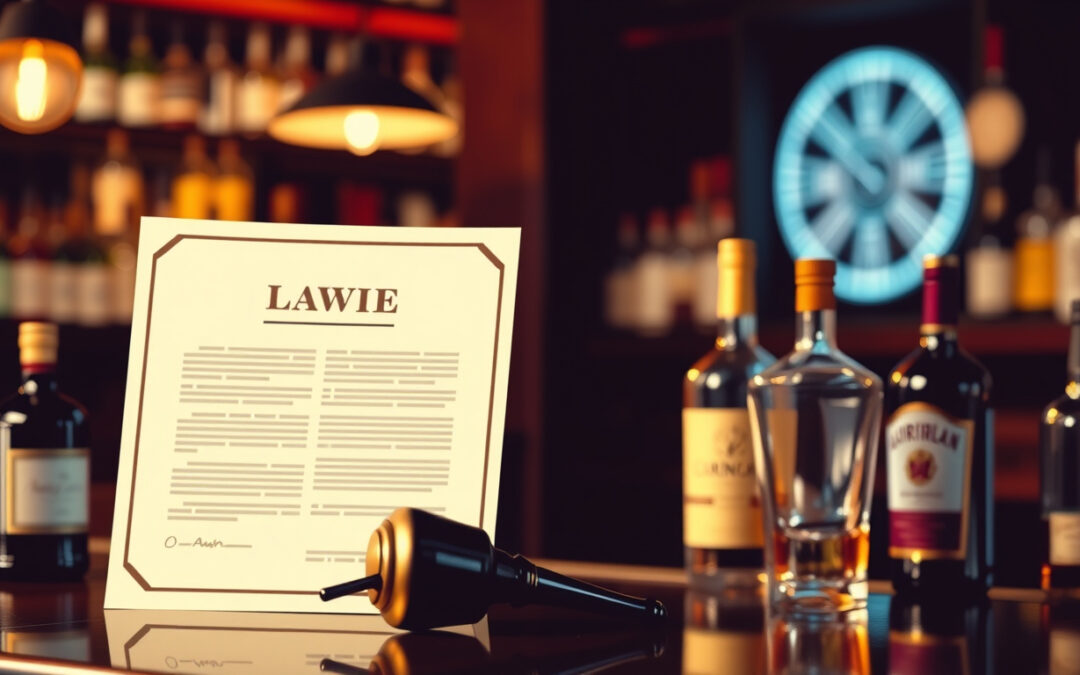Navigating the complex world of liquor laws is essential for both consumers and businesses involved in the sale and consumption of alcohol. Whether you’re planning to open a bar, attend a party, or just enjoy a drink responsibly, understanding liquor laws can help you stay within legal boundaries and avoid costly penalties. This comprehensive guide aims to demystify liquor laws, explain their importance, and provide practical advice for compliance and responsible drinking.
What Are Liquor Laws?
Liquor laws are regulations enacted by federal, state, and local governments to control the sale, distribution, and consumption of alcohol. These laws are designed to promote public safety, prevent underage drinking, and regulate alcohol’s impact on society. Because liquor laws vary widely by jurisdiction, it’s crucial for consumers and business owners to be familiar with the specific regulations in their area.
Why Are Liquor Laws Important?
Understanding liquor laws is vital for multiple reasons:
- Legal Compliance: Avoid fines, license suspensions, or criminal charges.
- Public Safety: Reduce alcohol-related accidents and injuries.
- Business Operation: Ensure your establishment operates within legal parameters.
- Responsible Consumption: Promote safe drinking practices among consumers.
Failing to adhere to liquor laws can have serious consequences both legally and socially. Therefore, education and awareness are key for everyone involved with alcohol.
The Key Components of Liquor Laws
Liquor laws encompass various aspects of alcohol regulation, including:
1. Licensing and Permits
Businesses must obtain specific licenses to sell alcohol legally. These licenses vary in type depending on the nature of the business:
- Retail License: For stores selling alcohol for off-premises consumption.
- On-Premises License: For bars, restaurants, or clubs serving alcohol on-site.
- Special Event Permits: For temporary sales at events or festivals.
2. Age Restrictions
Most jurisdictions prohibit the sale and consumption of alcohol by individuals under 21. Some states allow limited exceptions, such as for religious ceremonies or with parental supervision at home.
3. Hours of Sale
Liquor laws often specify the hours during which alcohol can be sold or served. For example, sales might be restricted to certain times of the day or week, especially on holidays or special occasions.
4. Drinking and Driving Laws
Strict regulations exist regarding operating vehicles under the influence of alcohol. The legal blood alcohol content (BAC) legal limit is typically 0.08%, but it can be lower in some states or specific situations.
5. Licensing Restrictions and Compliance
Businesses must adhere to operating standards, including responsible serving practices, record-keeping, and age verification procedures.
6. Advertising and Promotions
Many places regulate alcohol advertising to prevent targeting minors and to promote responsible drinking.

How Liquor Laws Vary by Jurisdiction
Liquor laws are not uniform across the country. For instance:
- Some states allow alcohol sales on Sundays, while others prohibit it.
- Certain municipalities have dry laws banning alcohol sales altogether.
- Licensing fees and application procedures differ widely.
It’s essential for businesses and consumers to consult local regulations. State alcohol control boards or commissions are authoritative sources for specific rules.
Practical Tips for Compliant Alcohol Consumption and Sales
Whether you’re a consumer or a business owner, these practical tips can help ensure compliance with liquor laws:
For Consumers:
- Always carry valid identification to prove age.
- Consume alcohol responsibly and never drink and drive.
- Be aware of local restrictions when attending events or visiting different jurisdictions.
For Business Owners:
- Obtain all required licenses before opening or selling alcohol.
- Train staff on legal age verification and responsible service.
- Monitor sales hours and adhere to limits set by local regulations.
- Keep detailed records of alcohol inventory and sales.
Common Liquor Law Pitfalls and How to Avoid Them
Here’s a list of common issues related to liquor laws and ways to prevent them:
- Serving Minors: Always verify IDs before serving alcohol.
- Selling Outside Allowed Hours: Stick to permitted sale times.
- Operating Without Proper Licensing: Secure necessary permits before starting sales.
- Ignoring State or Local Restrictions: Regularly review updates to liquor laws.
- Misleading Advertising: Follow guidelines on responsible and truthful promotion.
By staying informed and diligent, businesses can protect themselves and consumers alike.
The Role of Education and Enforcement
Enforcement agencies regularly audit and inspect establishments to ensure compliance. Education campaigns also play a significant role in promoting awareness, especially for new licensees or in areas with high underage drinking rates. Collaborative efforts between authorities and the community foster safer environments regarding alcohol consumption.
Conclusion
Understanding liquor laws is fundamental to maintaining legal compliance, ensuring safety, and fostering responsible drinking habits. For consumers, it means knowing your rights and responsibilities; for businesses, it’s about adhering to rules that promote fairness and safety. As laws evolve, staying informed through official sources and legal counsel helps prevent violations and encourages a culture of responsible alcohol use.
Top 5 Tips for Navigating Liquor Laws
- Stay Updated: Laws change frequently—regularly review local regulations.
- Verify Age Every Time: Always check IDs to prevent illegal sales.
- Secure Necessary Licenses: Don’t operate without proper permits.
- Train Staff Regularly: Educate employees on legal responsibilities.
- Promote Responsible Drinking: Encourage safe consumption in your establishment or social circles.
Frequently Asked Questions (FAQs)
Q1: What are the most important liquor laws for consumers to know?
A1: The most critical liquor laws for consumers include age restrictions (generally 21 and over), regulations regarding drinking and driving (BAC limits), and local ordinances about where and when alcohol can be consumed legally.
Q2: How can businesses ensure they are compliant with liquor laws?
A2: Businesses should obtain all necessary licenses, train staff in responsible service and age verification, keep accurate records, and adhere to permitted sale hours and advertising regulations.
Q3: Are liquor laws the same across all states?
A3: No, liquor laws vary significantly across states and municipalities. It’s essential to consult local authorities or legal counsel to understand specific regulations applicable in your area.
Final Thoughts
Navigating liquor laws may seem daunting, but with proper knowledge and diligent compliance, you can enjoy and sell alcohol responsibly and safely. For authoritative guidance, always refer to your state or local alcohol control authority, and stay updated on any legal amendments. Responsible alcohol consumption and adherence to liquor laws benefit everyone—creating safer communities and thriving businesses.
(Source: National Institute on Alcohol Abuse and Alcoholism)
Remember, staying informed and compliant isn’t just about avoiding penalties; it’s about fostering a culture of responsibility and safety around alcohol.


